Getting a vein was a frequent problem for Pete; the big veins in his arms were burned-out, and the rest weren’t much better. Buddha peered over shoulders into the room. Pete was lying in bed, on sheets so dirty they appeared to have a design of dark clouds. His freckly brown skin was suffused by a chalky pallor. Three young men-one of them Marlene’s pimp-were gathered around him, murmuring comforts. On the night table a lamp with a ruffled shade cast a buttery yellow light, giving shadows to the strips of linoleum peeling up from the floor.
Marlene came out of the bathroom, wearing an emerald-green robe. When she leaned over Pete, the halves of the robe fell apart, and her breasts hung free, catching a shine from the lamp. The needle in her hand showed a sparkle on its tip. She swabbed Pete’s neck with a clump of cotton and held the needle poised an inch or two away.
The heaviness of the light, the tableau of figures around the bed, Marlene’s gleaming skin, the wrong-looking shadows on the floor, too sharp to be real: taken all together, these things had the same richness and artful composition, the same important stillness, as an old painting that Buddha had once seen in the Museum of Art. He liked the idea that such beauty could exist in this ruinous house, that the sad souls therein could become even this much of a unity. But he rejected his pleasure in the sight, as was his habit with almost every pleasure.
Pete groaned and twisted about. “Stop that shit!” Marlene snapped. “Want me to bleed you dry?”
Other people closed in around the bed, blocking Buddha’s view. Pete’s voice dropped to a whisper, instructing Marlene. Then people began moving away from the bed, revealing Pete lying on his back, holding a bloody Kleenex to the side of his neck. Buddha spotted his goodnighter on the dresser: a needle resting on a mirror beside a tiny heap of white powder.
“How you doin?” Pete asked weakly as Buddha walked in.
He returned a diffident wave, went over to the dresser, and inspected the powder: it looked like a nice dose. He lifted the mirror and headed off downstairs to cook up.
“Goddamn!” said Pete. “Fifteen years I been takin’ care of you. Feedin’ your Jones, buyin’ your supper. Think we’d have a relationship by now.” His tone grew even more irascible. “I should never have give you that damn name! Got you thinkin’ you inscrutable, when all you is is ignorant!”
* * * *
Nodding on his mattress in the moonlit dark, feeling the rosy glow of the fix in his heart, the pure flotation of China White in his flesh, Buddha experienced little flash dreams: bizarre images that materialized and faded so quickly, he was unable to categorize them. After these had passed he lay down, covered himself with a blanket, and concentrated upon his dream of Africa, the one pleasure he allowed himself to nourish. His conception of Africa bore no relation to the ethnic revival of the sixties, to Afros and dashikis, except that otherwise he might have had no cognizance of the Dark Continent. Buddha’s African kingdom was a fantasy derived from images in old movies, color layouts in National Geographic, from drugs and drugged visions of Nirvana as a theme park. He was not always able to summon the dream, but that night he felt disconnected from all his crimes and passionate failures, stainless and empty, and thus worthy of this guardian bliss. He closed his eyes, then squeezed his eyelids tight until golden pinpricks flowered in the blackness. Those pinpricks expanded and opened into Africa.
He was flowing like wind across a tawny plain, a plain familiar from many such crossings. Tall grasses swayed with his passage, antelope started up, and the gamy smell of lions was in the air. The grasslands evolved into a veld dotted with scum-coated ponds and crooked trees with scant pale foliage. Black stick figures leaped from cover and menaced him with spears, guarding a collage peopled by storytellers and long-legged women who wore one-eyed white masks and whose shadows danced when they walked. Smoke plumed from wart-shaped thatched huts and turned into music; voices spoke from cooking fires. Beyond the village stood green mountains that rose into the clouds, and there among the orchids and ferns were the secret kingdoms of the gorillas. And beyond the mountains lay a vast blue lake, its far reaches fringed by shifting veils of mist in whose folds miragelike images materialized and faded.
Buddha had never penetrated the mists: there was something ominous about their unstable borders and the ghostly whiteness they enclosed. At the center of the lake a fish floated halfway between the surface and the bottom, like the single thought of a liquid brain. Knowing that he must soon face the stresses of the outside world, Buddha needed the solace offered by the fish; he sank beneath the waters until he came face-to-face with it, floating a few inches away.
The fish resembled a carp and measured three feet from its head to its tail; its overlapping scales were a muddy brown, and its face was the mask of a lugubrious god, with huge golden eyes and a fleshy down-turned mouth. It seemed to be regarding Buddha sadly, registering him as another of life’s disappointments, a subject with which it was quite familiar, for its swollen belly encaged all the evil and heartache to the world, both in principle and reality. Buddha gazed into its eyes, and the pupils expanded into black funnels that connected with his own pupils, opening channels along which torrents of grief and fear began to flow. The deaths of his wife and mother were nothing compared with the hallucinatory terrors that now confronted him: demons with mouths large enough to swallow planets; gales composed of a trillion dying breaths; armies of dead men and women and children. Their bodies maimed by an infinity of malefic usage. Had he witnessed these visions while awake, he would have been overwhelmed; but protected by the conditions of the dream, he withstood them and was made strong.
And before long he fell asleep in the midst of this infinite torment contained within the belly of the fish in his dream, contained in turn within his skull, within the ramshackle frame house, within the gunshot-riddled spiritual realm of the Detroit ghetto, whose agonies became a fleeting instance of distress-the fluttering of an eyelid, the twitching of a nerve-within the dreamed-of peace of Buddha’s sleep.
* * * *
The shooting gallery was located in the Jefferson-Chalmers district, the section of the ghetto most affected by the ‘67 riots. Hundreds of gutted houses still stood as memorials to that event, and between them-where once had stood other houses-lay vacant lots overgrown with weeds and stunted trees of heaven. The following afternoon, as he walked past the lot adjoining the shooting gallery, Buddha was struck by the sight of a charred sofa set among weeds at the center of the lot, and obeying an impulse, he walked over to it and sat down. It was the first day of fall weather. The air was crisp, the full moon pinned like a disfigured cameo of bone to a cloudless blue sky. In front of the sofa was a pile of ashes over which somebody had placed a grill; half a dozen scorched cans were scattered around it. Buddha studied the ashes, the grill, the cans, mesmerized by the pattern they formed. Sirens squealed in the distance, a metallic clanging seemed to be issuing from beyond the sky, and Buddha felt himself enthroned, the desireless king of a ruined world in which all desire had faltered.
He had been sitting for perhaps an hour when a teenage boy with a freckly complexion like Pete’s came running along the sidewalk. Dressed in jeans and a sweatshirt and lugging an immense ghetto blaster. The boy looked behind him, then sprinted across the lot toward Buddha and flung himself down behind the sofa. “You tell ‘em I’m here,” he said breathlessly, “I’ll cut ya!” He waggled a switchblade in front of Buddha’s face. Buddha just kept staring at the toppled brick chimneys and vacated premises. A dragonfly wobbled up from the leaves and vanished into the sun dazzle of a piece of broken mirror canted against the ash heap.
Читать дальше


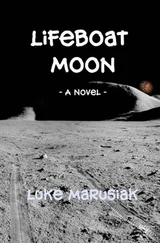
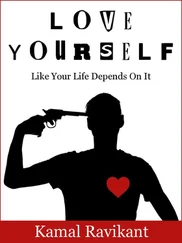

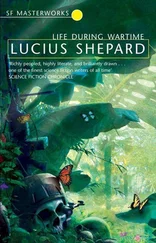

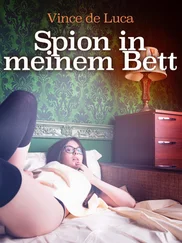
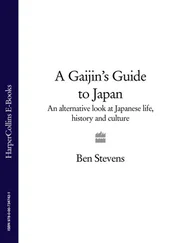


![William Frith - John Leech, His Life and Work. Vol. 1 [of 2]](/books/747171/william-frith-john-leech-his-life-and-work-vol-thumb.webp)
![William Frith - John Leech, His Life and Work, Vol. 2 [of 2]](/books/748201/william-frith-john-leech-his-life-and-work-vol-thumb.webp)